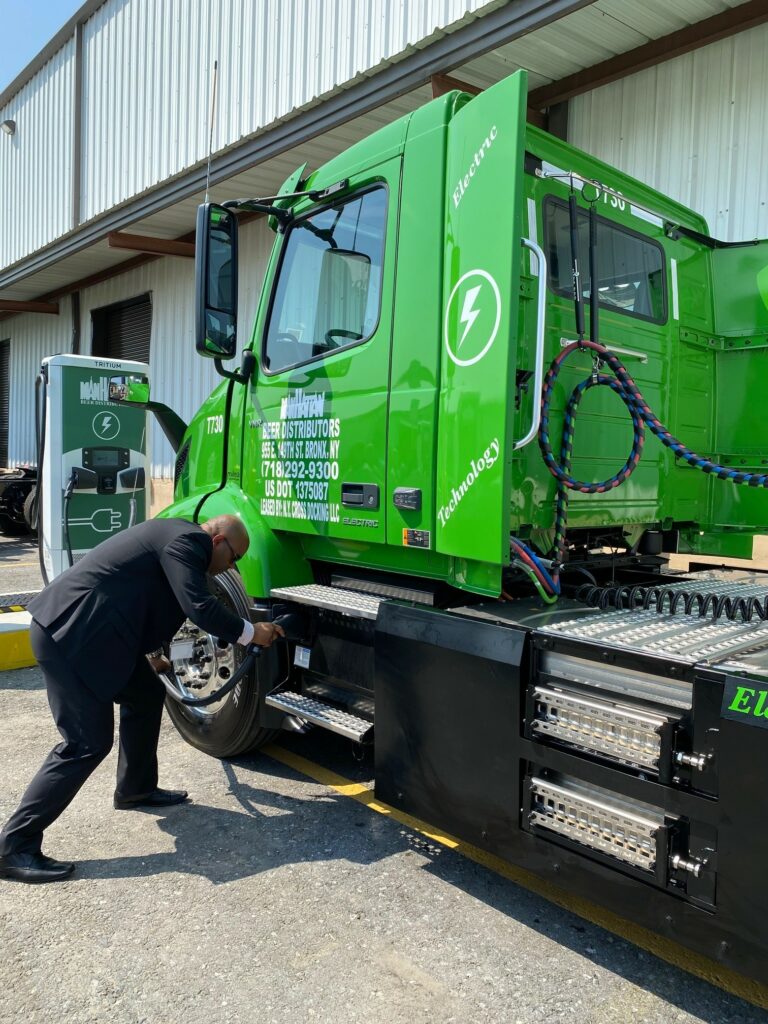3 questions to ask before buying an electric truck
You’ve decided to buy the first 100% electric truck for your transportation business. You want to do your part in reducing greenhouse gas (GHG) emissions, and see evermore models released to the market. But you may not know where to start.
Battery management, charging infrastructure, specific operational needs, route planning, and charging stations all need to be addressed.
Here are three of the first questions to ask yourself before making your choice.
1. What are your operational needs?
What do you want to use the truck for, what will be delivered, and where? These are the first questions to be answered. With a range that is still relative — generally between 180 and 400 km — today’s battery-electric trucks are best suited for urban and regional applications.
InnovHQ, the Hydro-Québec division that offers charging solutions for electric vehicle fleets, notes that the actual range of a truck’s batteries will actually be 90% to 95% of the manufacturer’s stated maximum charge. Drivers can’t access the remaining 5% to 10%.
While weights including equipment and cargo alike will play a role in calculating range, the availability and speed of any charging stations will also play a role in scheduling.

What are your charging needs?
How many electric trucks will the company own in five or 10 years? Will ranges require you to charge trucks once or twice a day?
If the truck does not need to be recharged during the day, a 240-volt AC Level 2 terminal may be sufficient. A 240-volt charger and 15- or 80-amp service will, after each hour of charging, deliver the energy needed to travel 35 to 100 km.
Single charging stations can be priced at $1,000 to $4,000, and cost $1,000 to $5,000 to install.
If the truck requires a mid-day refill, then a DC fast charging station will be required since it will take only 35 to 45 minutes to deliver enough energy for a 150-km range. It will typically require 60-200-amp service.
The cost of purchasing this type of charging station ranges from $20,000 to $70,000, and installation from $10,000 to $50,000.
Do you plan to train the drivers?
Drivers will also need to be trained in new techniques to maximize the potential ranges.
Volvo Trucks and the Montreal-based parcel delivery company Obibox, for example, advise drivers to warm up or cool down truck cabs before disconnecting power cords, rather than consuming energy in the batteries to power the HVAC systems.
Gradual stops will also support regenerative braking systems that recover kinetic energy and extend vehicle range by up to 35%.
Have your say
This is a moderated forum. Comments will no longer be published unless they are accompanied by a first and last name and a verifiable email address. (Today's Trucking will not publish or share the email address.) Profane language and content deemed to be libelous, racist, or threatening in nature will not be published under any circumstances.
We need to limit electric trucks to deliver and local use only. We do not have enough hydro or materials to make long range electric truck economical. A system of electric plugs for drivers comfort and 50 Amp overnight parking for local delivery facilities is where it should stop
No trucking company should get over $120,000 cd for upgrades to wiring and a max of $30,000/ truck to $100,000 per company.